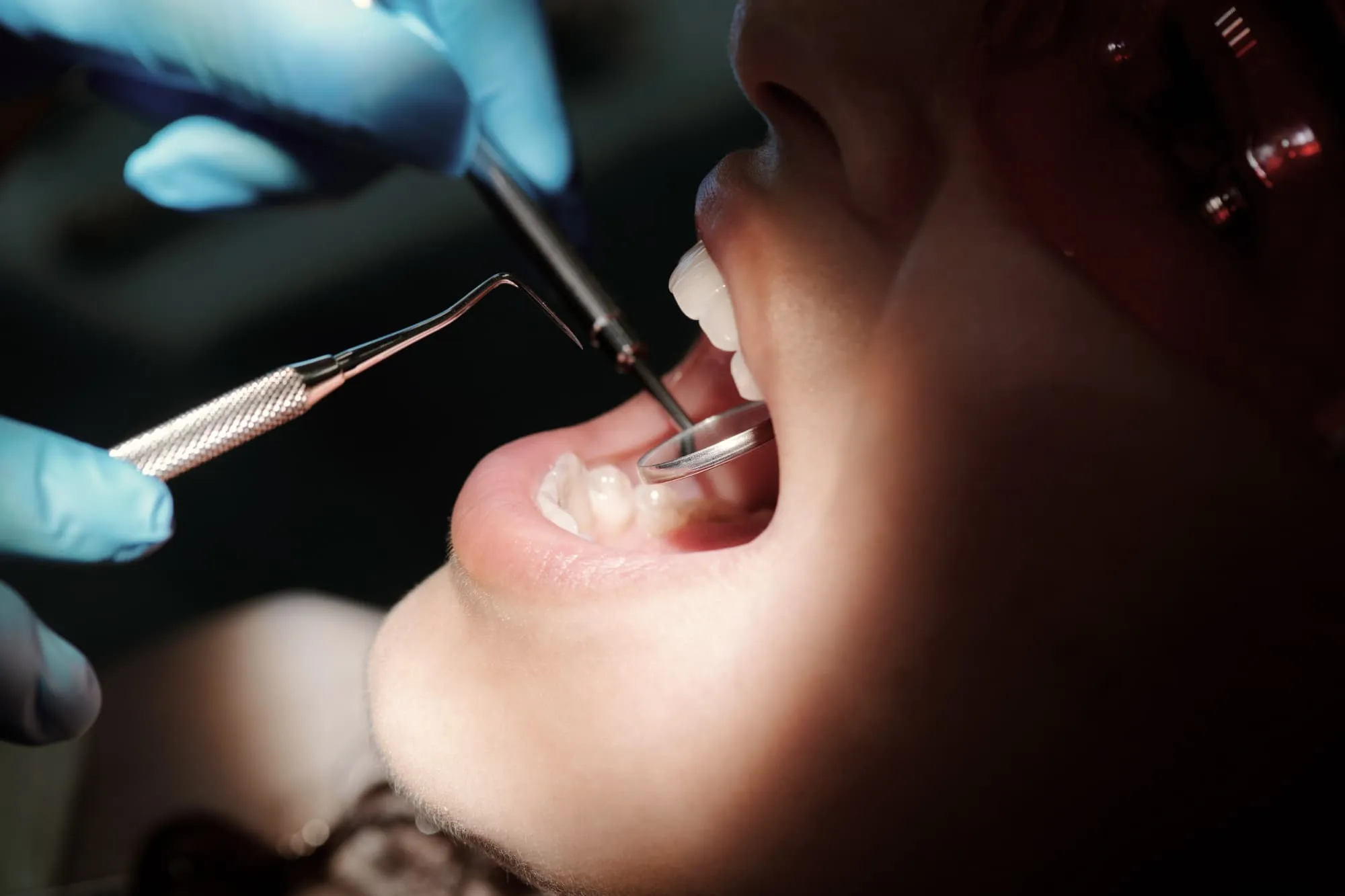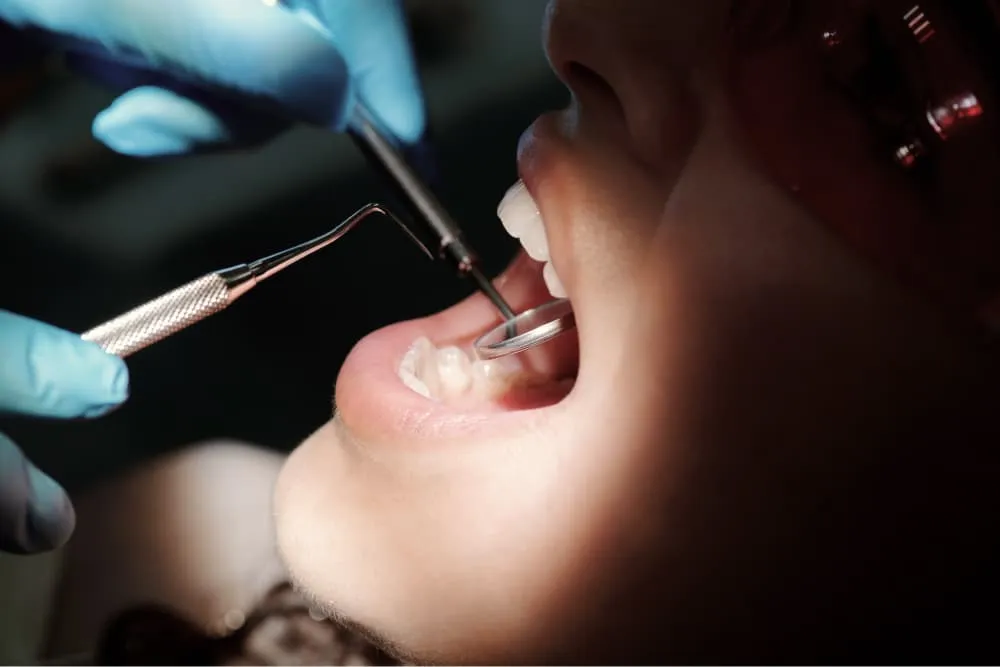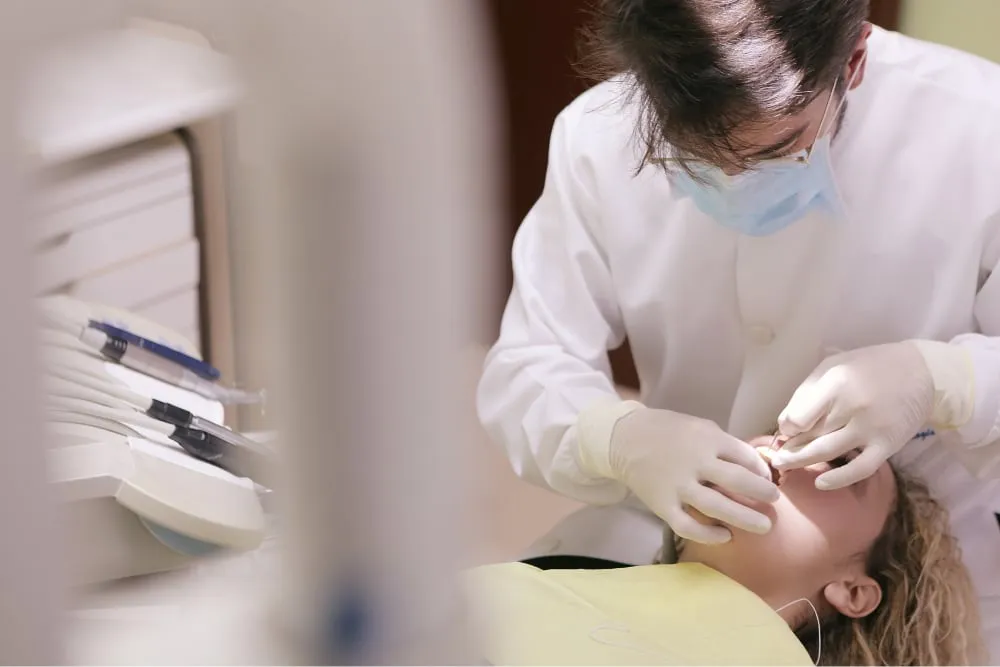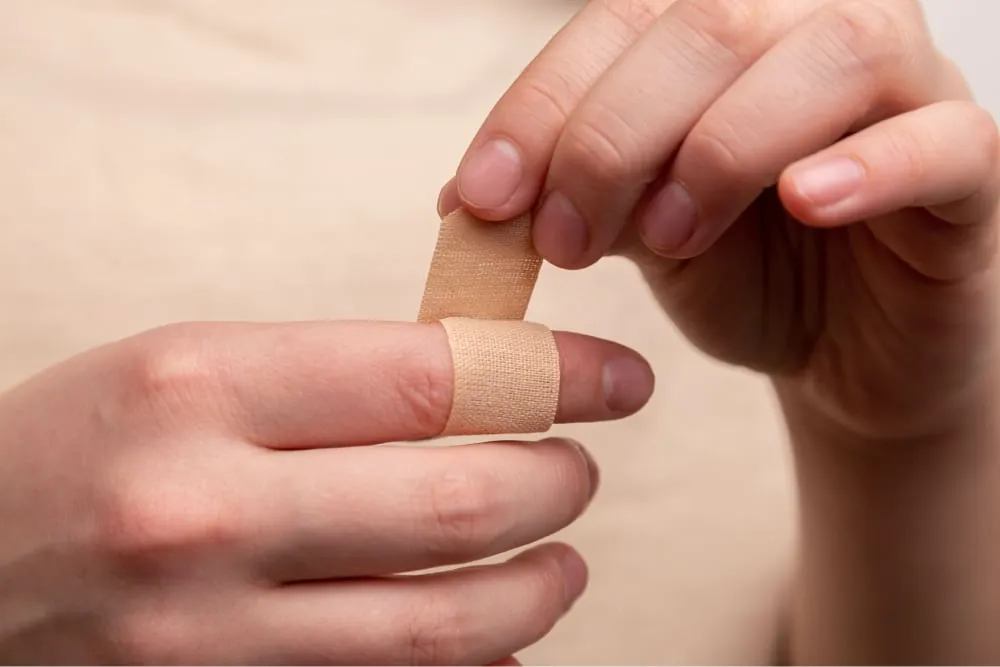How bulimia teeth can occur
The frequent purging people with bulimia engage in also permanently erodes the protective enamel coating on teeth. This initially leads to bulimia teeth issues, such as hot and cold sensitivity when consuming food and drinks. (1) When the thin layer of enamel has eroded away, the stomach acid will break down the calcium in teeth, causing significant discoloration, worsened sensitivity, and eventual tooth decay. The teeth can become brittle and yellow, with visible changes in tooth shape after many years of vomiting. They can become more prone to chipping and infection, and even wear down to small nubs, requiring dental reconstruction.
Meta-analysis studies of patients with an eating disorder found that tooth erosion occurs twenty times more often in those who self-induce vomiting than those who spontaneously vomit. (5) In a large survey done among those in therapy for BN, only 30% reported knowing that purging behavior causes erosion of their teeth. (7)
Thirty-two percent reported brushing their teeth immediately after vomiting. But brushing teeth actually causes more damage to enamel. (3,4) To reduce the amount of tooth enamel lost, it is better to: (6)
- Wash the mouth with water or fluoride solution
- Gargle with baking soda, which is basic, as opposed to acidic, and neutralizes stomach acid in the mouth
- Wait at least thirty minutes before brushing, if toothpaste must be used
- Use basic, alkaline toothpaste if possible
- Avoid eating acidic foods, such as lemons, or consuming alcohol
- Floss daily
- Chew sugar free gum to stimulate saliva flow
How bulimia can permanently damage the lips and mouth
The stomach acid in vomit burns away layers of skin from the lips, causing a painful, flaky condition called exfoliative cheilitis. (1,2,8) The lips and mouth tissue take on a permanently inflamed, red color. Because purging requires powerful force to bring up contents from the stomach, blood vessels will burst.This causes the palate and tongue to turn an orange-yellow hue as a result. (1,2)
Increased contact with stomach acid in the mouth can result in painful ulcers, which can be very painful and bleed. The salivary glands eventually decrease their production of saliva, causing severe dry mouth. These glands can also swell, which results in puffiness on either side of the face, called cheek edema. The pH and electrolyte composition of saliva also changes. Some studies found that all these side effects can develop within just six months of regular vomiting. (8)
In a prospective case-control study with 65 patients with BN and anorexia nervosa (AN), 94% showed oral lesions. Because of this, dentists are often the first healthcare provider to notice the early signs of ongoing BN. (2)
In a survey of 201 women with BN, 92.4% reported having dental problems, but only 29.2% reported discussing their BN with a dentist. Less than one third of participants considered their oral health providers to be helpful in their disease treatment. (3,4)
Why it’s critical to consult a dentist
When purging behavior is under better control, it’s a good idea to consult a dentist. Your dentist can initiate restorative procedures to save whatever healthy teeth remain or may suggest dentures or porcelain veneer replacements due to the damage bulimia purging may have caused your teeth. Leaving tooth and gum decay untreated can result in cavities, oral abscesses, tooth loss, sepsis, and heart problems. (1)
Recently, there have been more reported cases of a condition called necrotizing sialometaplasia in people who have BN. This condition develops when the mouth lining or a salivary gland does not get enough blood or suffers some sort of trauma, such as from frequent burning during vomiting, and forms an ulcer. This can develop into a serious infection. Anyone with a growing oral ulcer should seek immediate help from a dentist. (9)
Having poor dental hygiene contributes to the social isolation typically seen in BN. People with bulimia start to speak, smile, or laugh less and tend to withdraw from kissing in romantic relationships. Healing from any eating disorder includes fostering these types of relationships. (7)
At Within Health, we surround everyone who struggles with bulimia nervosa, or any other eating disorder, with a strong, supportive healthcare team. While we do our best to meet their needs in a telehealth setting, seeing a dentist regularly is an essential part of recovering from BN. Those who suffer from an eating disorder and see their dentist at least every six months are much less likely to suffer permanent tooth decay and damage. (3,7)

































